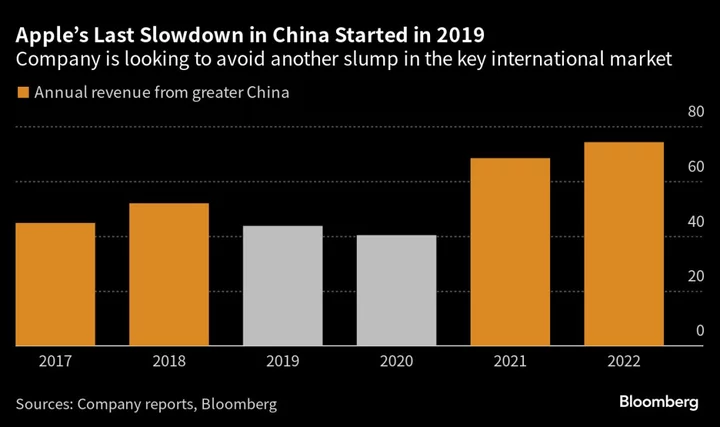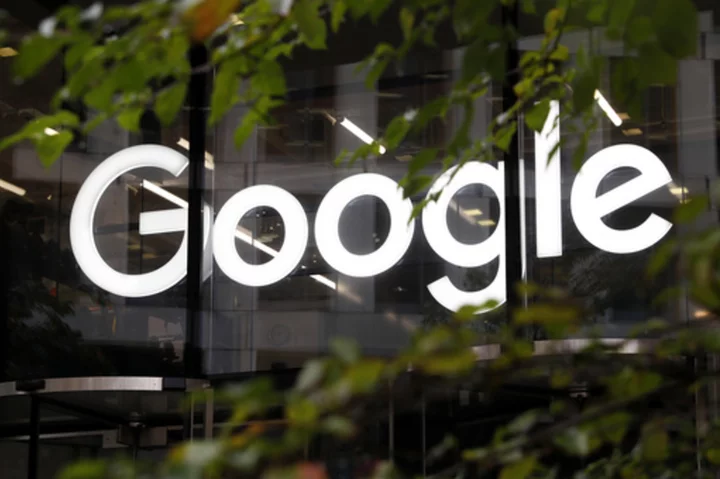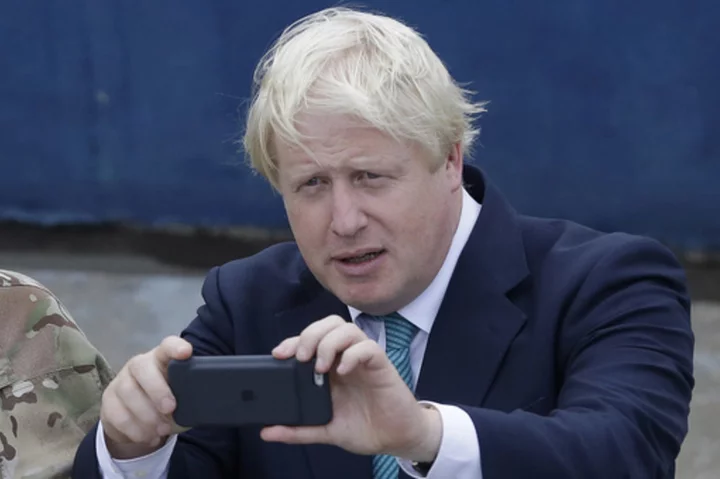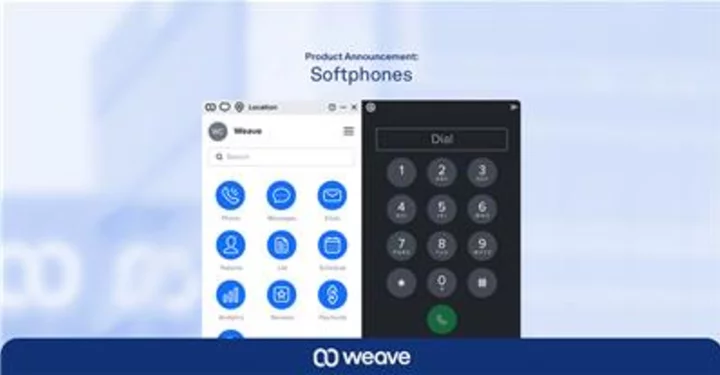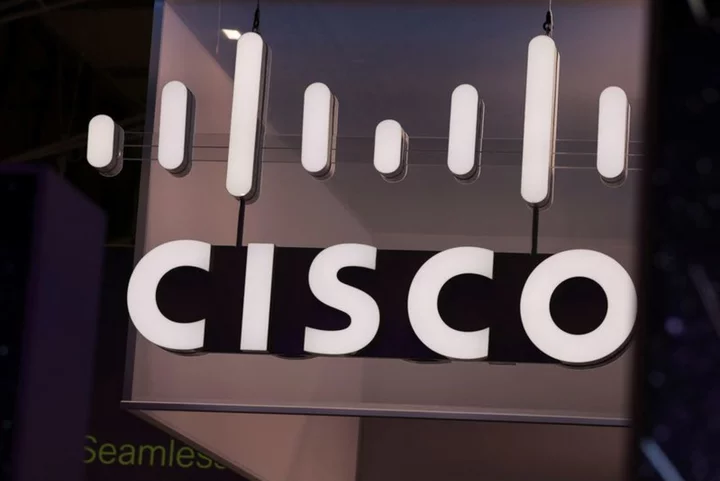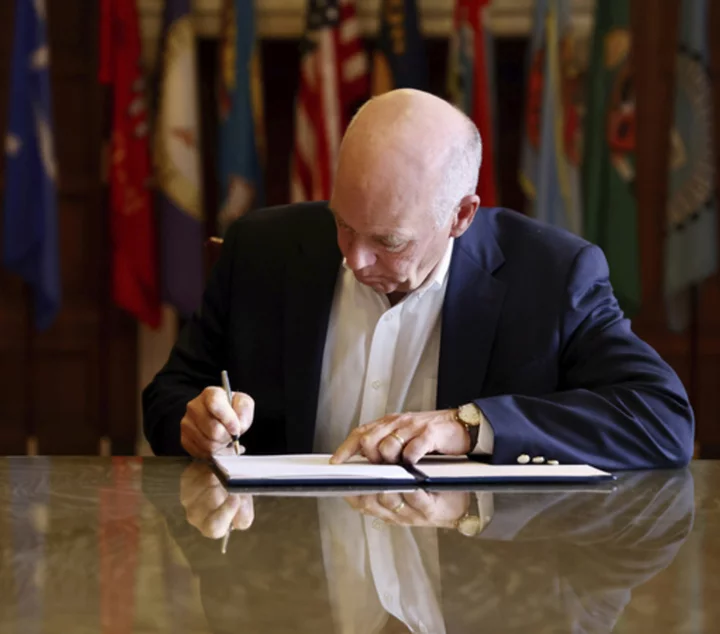Apple Inc. is looking to stave off a crisis in China just days before the launch of its next iPhone, an already high-stakes event that will test whether new features can shake the smartphone industry out of the doldrums.
The product unveiling, set to stream globally from the company’s headquarters on Tuesday, risks being overshadowed by multiple controversies in China — Apple’s largest international market. The tech titan is contending with a growing ban on iPhone use among government workers, and a contentious new phone from China’s Huawei Technologies Co. is providing homegrown competition.
But the biggest potential threat to Apple may be something more nebulous: a resurgence in Chinese nationalism that spurs everyday consumers to shun the iPhone and other foreign-branded devices.
It’s something the company has confronted before. Almost five years ago, Apple fell short of holiday forecasts for its just-released iPhone XS and XR because of weak sales in China. Publicly, Apple blamed the US-China trade war and the local economy. But in an internal email to the company’s board, Chief Executive Officer Tim Cook also cited Chinese nationalism and growing competition from local rivals.
At the time, the Trump administration had recently blacklisted Huawei, and simmering US-China tensions made life harder for companies deeply reliant on the Asian nation. Apple’s Chinese revenue fell in fiscal 2019 and 2020, before rebounding in 2021. The company generates about a fifth of its sales from China, which is also the heart of Apple’s supply chain.
The question now is whether Apple will face a repeat of 2019. The growing government bans are an ominous sign. Workers at agencies and state-owned companies are increasingly barred from using iPhones at the office. The news has sent Apple’s shares sliding the past two days, erasing $190 billion from its valuation.
A spokesman for Cupertino, California-based Apple declined to comment.
US lawmakers also are renewing scrutiny of Huawei suppliers, with some calling for a halt to all US exports to the controversial Chinese tech company. The latest outcry centers on China’s top chipmaker, Semiconductor Manufacturing International Corp., which appears to have violated American sanctions by supplying advanced components for the new Huawei phone, US lawmakers said. Legislators also have proposed bans of TikTok, owned by China’s ByteDance Ltd.
Against that backdrop, anti-Apple sentiment has spread on Chinese social media. There was even speculation that China Mobile Ltd., the country’s wireless carrier, wouldn’t stock the iPhone 15 — something the state-owned company denied.
A video published online Wednesday showed strong foot traffic at an Apple store in Guangzhou, but the post’s comments quickly filled up with anti-Apple rhetoric. “As long as the job seekers use an Apple phone, I won’t hire them,” one said. Other users wrote that they will “never buy an Apple phone” and “take pride in buying a Huawei.” Another added, “Why can’t we ban sales of Apple while Americans have banned Huawei?”
Last year, China ordered its government agencies and state-owned companies to replace foreign computers with domestic alternatives by 2024. So far, that move hasn’t led to much suffering for Apple, which saw its Mac business in the second quarter grow 17% in China, according to data from Canalys.
The bans may just be part of a longstanding trend.
“Party officials have likely avoided using American products in the workplace for long before the official ban was enacted,” Evercore ISI analyst Amit Daryanani said in a report Thursday.
If consumers in China are looking to dump Apple, the new Huawei phone could provide an alternative. It sports a larger display and battery than the upcoming highest-end iPhone 15 Pro. The device also has higher-resolution cameras and a price that undercuts its US-based rival.
Still, there’s no sign yet of a broad shift away from Apple in the phone market. In fact, the company was one of the few smartphone sellers to see sales grow in the second quarter, according to research firm IDC. The only other major manufacturing to post an increase was Huawei, which finished the period with a smaller market share than Apple.
For now, the Chinese market has been a bright spot for Apple during a difficult stretch. Its overall sales have dropped for three quarters in a row, and revenue is poised to dip again in the latest period — marking the company’s longest string of decreases in two decades. The iPhone 15 line, with niceties like a titanium frame and enhanced camera, is meant to help pull the company out of that funk.
Ultimately, China has an incentive not to push an iPhone ban too far. Apple supports millions of workers in the country, and it would hard for the government to punish the company without hurting its own people.
--With assistance from Jacob Gu.

